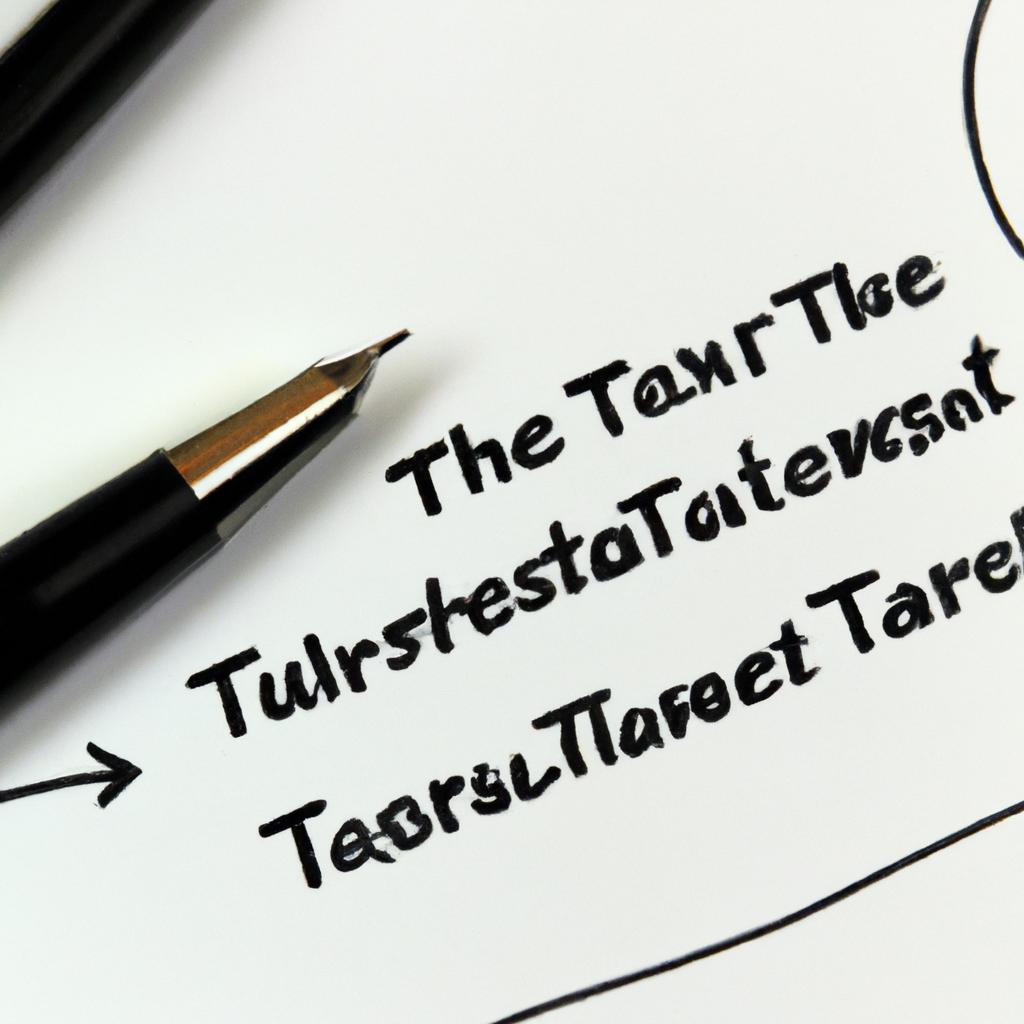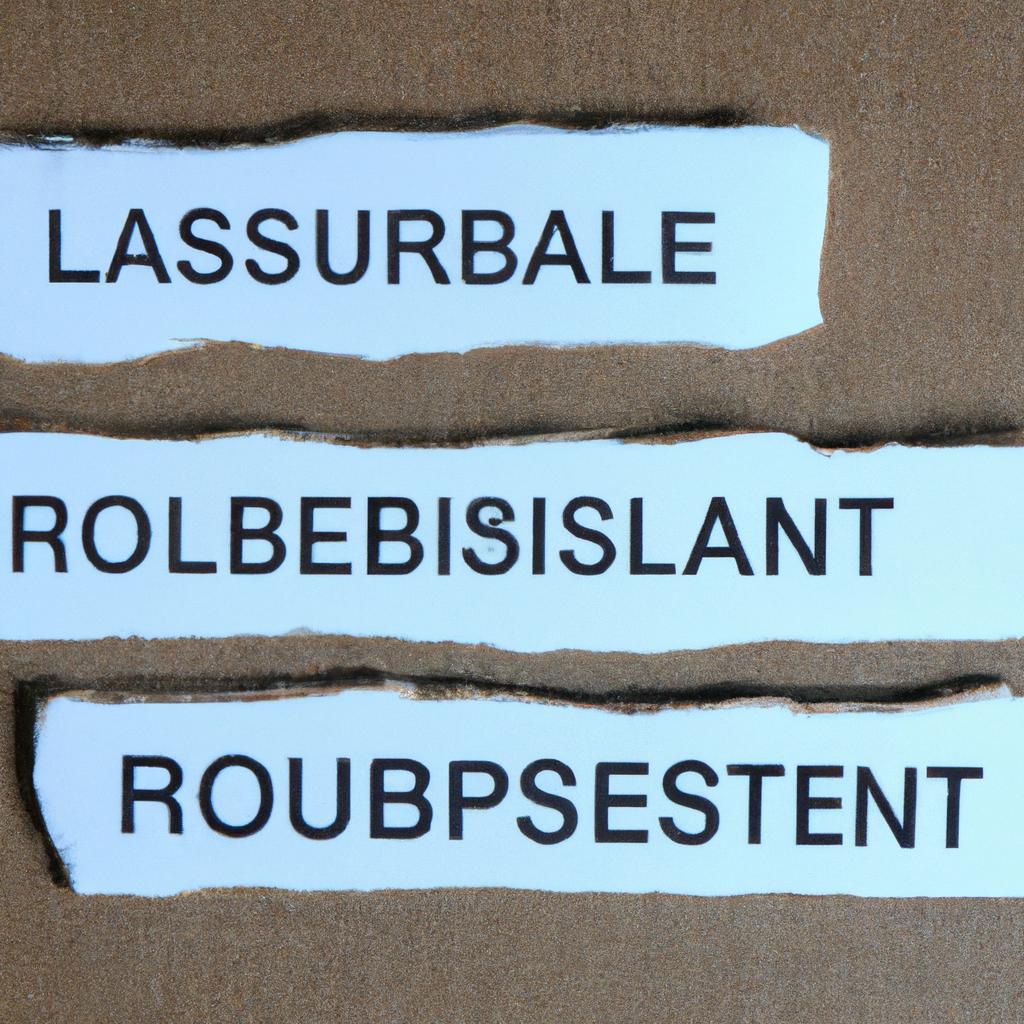Trusts are a fundamental component of estate planning, providing individuals with a valuable mechanism for distributing their assets and protecting their legacy. Central to the creation and management of a trust is the role of the trustor. Defined as the individual who establishes the trust and transfers assets into it for the benefit of designated beneficiaries, the trustor holds a position of significant responsibility and authority. In this article, we delve into the nuances of defining the trustor within the realm of estate planning and highlight the crucial role they play in shaping the future of their estate. As experienced attorneys at Morgan Legal Group in New York City, we provide expert guidance on all aspects of trust creation and administration, ensuring our clients have a comprehensive understanding of their rights and obligations as trustors.
Understanding the Role of the Trustor in Estate Planning
Trustors play a crucial role in estate planning by establishing the trust and transferring assets into it. A trustor is the individual who creates the trust and has the legal authority to transfer assets into it. This key role involves making important decisions about how the trust will be structured and managed, as well as designating beneficiaries who will ultimately benefit from the trust.
One of the primary responsibilities of a trustor is to appoint a trustee who will manage the trust assets and follow the instructions outlined in the trust document. Trustors must also carefully consider the specific goals and intentions they have for their assets and communicate these clearly in the trust agreement. By , individuals can take proactive steps to ensure their assets are properly managed and distributed according to their wishes.

Key Characteristics of a Trustor in Trust Agreements
In trust agreements, the trustor plays a crucial role as the individual creating the trust. The trustor is responsible for transferring assets into the trust and establishing the terms and conditions that will govern the trust’s administration. Understanding the key characteristics of a trustor is essential for ensuring the trust agreement is structured effectively and aligns with the trustor’s intentions.
**:**
- Legal Capacity: The trustor must have the legal capacity to create a trust, which typically means being of sound mind and over the age of 18.
- Intent: The trustor must have a clear intention to create a trust and transfer assets into the trust for the benefit of beneficiaries.
- Selection of Trustees: The trustor must designate one or more trustees to oversee the trust and carry out the trustor’s wishes.
- Asset Transfer: The trustor is responsible for transferring assets into the trust, which may include real estate, financial accounts, business interests, and personal property.

Legal Responsibilities and Liabilities of Being a Trustor
As a trustor, it is crucial to understand the legal responsibilities and liabilities that come with this role. A trustor, also known as a grantor or settlor, is the individual who creates a trust by transferring assets into the trust for the benefit of designated beneficiaries. In doing so, the trustor assumes certain duties and obligations that must be fulfilled to ensure the proper administration of the trust.
One of the primary legal responsibilities of being a trustor is to carefully outline the terms and conditions of the trust in a legally binding document known as a trust agreement. This document dictates how the assets in the trust are to be managed and distributed, as well as the rights and obligations of the trustee and beneficiaries. Additionally, as a trustor, you are responsible for selecting a competent and trustworthy trustee to oversee the administration of the trust and carry out your wishes in accordance with the trust agreement. Failure to fulfill these duties can result in legal consequences and liabilities for the trustor.

Best Practices for Selecting a Trustor for Your Estate Plan
When it comes to creating an estate plan, selecting a trustor is a critical decision that should not be taken lightly. The trustor is the individual who creates the trust and determines how their assets will be managed and distributed. It is essential to choose a trustor who is trustworthy, reliable, and capable of making sound financial decisions. Here are some best practices to consider when selecting a trustor for your estate plan:
- Ensure the trustor has a good understanding of financial management and estate planning concepts.
- Choose someone who has a strong sense of responsibility and will act in the best interests of the beneficiaries.
- Consider appointing a professional trustee, such as a lawyer or financial advisor, to ensure the trust is properly managed.
By carefully selecting a trustor for your estate plan, you can help ensure that your assets are protected and distributed according to your wishes. At Morgan Legal Group, our experienced estate planning attorneys can help you navigate the complexities of trust creation and administration, ensuring that your legacy is preserved for future generations.
Q&A
Q: What is a trustor and what role do they play in a trust agreement?
A: A trustor is the person who creates a trust agreement and transfers assets into it. They are also known as a settlor or grantor.
Q: How does a trustor establish trust and what are their responsibilities?
A: A trustor establishes trust by designating a trustee to manage the assets in the trust for the benefit of the beneficiaries. Their responsibilities include clearly outlining the terms of the trust, selecting appropriate trustees, and periodically reviewing the trust to ensure it meets their intentions.
Q: Can a trustor be the beneficiary of the trust they create?
A: Yes, a trustor can also be a beneficiary of the trust they create. In many cases, trustors will designate themselves and their loved ones as beneficiaries to provide for their financial needs and protection.
Q: What happens if a trustor fails to fulfill their obligations in a trust agreement?
A: If a trustor fails to fulfill their obligations in a trust agreement, such as not transferring assets into the trust or not abiding by the terms outlined in the trust document, it can lead to legal disputes and potentially the trust being revoked or restructured.
Q: Are there any legal requirements for a trustor to follow when creating a trust?
A: Trustors must adhere to legal requirements when creating a trust, such as ensuring the trust is properly executed and that they have the legal capacity to establish a trust. Additionally, trustors must comply with tax laws and regulations related to trusts.
Closing Remarks
In conclusion, understanding the role of a trustor is essential in the realm of trust and estate planning. By entrusting assets and responsibilities to a trustor, individuals can ensure that their wishes are carried out efficiently and effectively. So, the next time you hear the term “trustor,” know that it represents a pivotal figure in the world of trusts and a key player in the preservation and distribution of assets. Trust in the trustor, for they hold the key to ensuring your legacy lives on.
 As humans, we interact with others on a daily basis. Whether it’s with friends, family members, coworkers, or even strangers, our interactions are built on trust. But what exactly does trust mean? And what is a trustor? In this article, we’ll dive into the definition of trustor and why understanding the concept is important in our daily lives.
As humans, we interact with others on a daily basis. Whether it’s with friends, family members, coworkers, or even strangers, our interactions are built on trust. But what exactly does trust mean? And what is a trustor? In this article, we’ll dive into the definition of trustor and why understanding the concept is important in our daily lives.
To put it simply, a trustor is someone who places trust in another person. This individual is the one who relies on and believes in the actions, words, and promises of another. The concept of trustor is often associated with the legal term “trustee,” which refers to the person who is entrusted with managing and overseeing a trust for the benefit of another individual.
The Importance of Trust in Human Relationships
Trust is a vital component of human relationships. It is the foundation on which all healthy relationships are built, whether it’s a romantic partnership, friendship, or professional relationship. Trust is the belief that someone is reliable, honest, and has our best interests at heart. Without trust, it can be difficult to form strong and lasting connections with others.
Trust plays a crucial role in relationships because it allows individuals to be vulnerable and open with one another. It takes a great deal of trust to share personal thoughts, feelings, and experiences with another person. When trust is present, it creates a safe space for open communication and strengthens the bond between two people.
Defining Trustor
Now that we understand the importance of trust, let’s take a closer look at what a trustor is. As mentioned earlier, a trustor is the person who places trust in someone else. This means that the trustor is the one who is counting on the other person to fulfill their duties and obligations and act in their best interest.
In many cases, the trustor is someone who has appointed a trustee to manage their assets or finances on their behalf. This may occur when someone creates a trust, either through a will or a separate legal document, to ensure that their assets are managed and distributed according to their wishes after their passing.
The role of the trustor doesn’t end at appointing a trustee. It is crucial for the trustor to carefully choose the trustee and ensure that they are someone they can trust to carry out their wishes. This is especially important in cases where the trustor may be unable to manage their own affairs due to age, illness, or other circumstances.
Benefits of Being a Trustor
While it may seem like being a trustor only involves placing trust in someone else, there are also many benefits that come with this role. These include:
1. Peace of Mind: By appointing a trustee, trustors can have peace of mind knowing that their assets and finances will be handled properly and according to their wishes.
2. Protection of Assets: A trustor can use a trust to protect their assets from creditors or legal disputes, ensuring that their hard-earned wealth is preserved and distributed to their loved ones as intended.
3. Control Over Distribution: Trusts allow trustors to have control over how their assets are distributed. This is especially useful if there are minor beneficiaries or individuals with special needs who need to be taken care of.
4. Tax Benefits: Depending on the type of trust, there can be potential tax benefits for trustors, such as reducing estate taxes or protecting assets from income taxes.
5. Avoiding Probate: By creating a trust, trustors can avoid the lengthy and costly process of probate, ensuring that their assets are distributed efficiently and privately.
Tips for Trustors
If you’re considering becoming a trustor, here are a few tips to keep in mind:
1. Choose Your Trustee Wisely: Trustors should carefully consider who they appoint as their trustee. It should be someone they trust and who has the necessary skills and experience to manage their assets properly.
2. Communicate Openly: Trustors should communicate clearly with their trustee and ensure that their wishes and expectations are clearly stated in the trust document. This will help to prevent any misunderstandings or disputes in the future.
3. Review Your Trust Periodically: As life circumstances change, it’s essential for trustors to review their trust periodically and make any necessary updates or changes. This will ensure that the trust remains in line with their current wishes and goals.
In conclusion, trustor is someone who places trust in another person, often a trustee, to manage their assets or finances for their benefit. Trust is a crucial component of human relationships, and understanding the concept of trustor can help individuals form strong and lasting connections with others. By carefully choosing a trustee and communicating openly, trustors can reap the benefits of having a well-managed trust.


